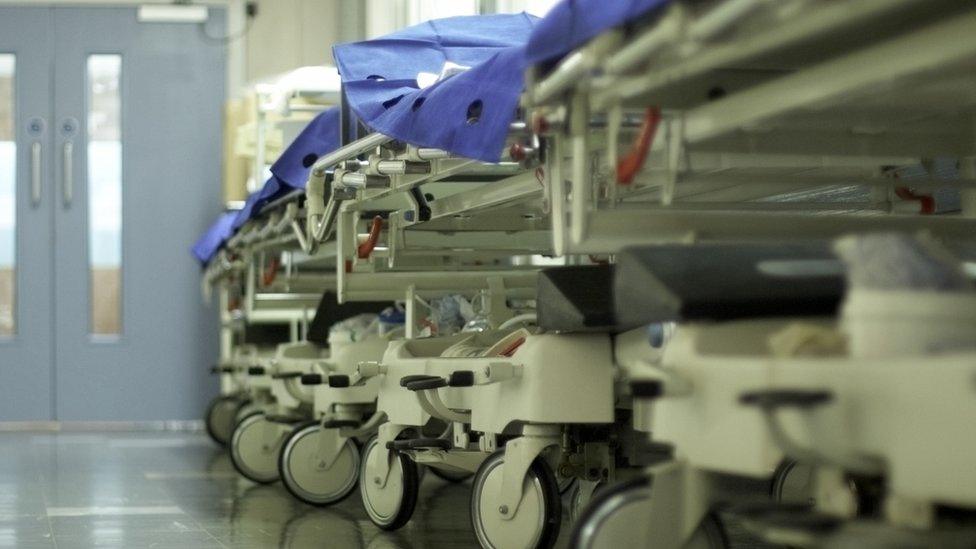NI patients can apply for health treatment in Republic of Ireland
- Published

Patients in Northern Ireland can now apply to have their treatment carried out in the Republic of Ireland.
The Republic of Ireland Reimbursement Scheme is a limited version of the Cross-Border Healthcare Directive, which ended on 31 December after Brexit.
The new scheme will run for a year.
Patients may seek and pay for "routinely commissioned treatment" in the private sector in the Republic, then have the costs reimbursed.
That reimbursement will be limited to what the same treatment would have cost under health and social care in Northern Ireland.
The scheme does not apply to treatment in the private sector.
NI residents only
Speaking at Thursday's meeting of the Stormont Health Committee, a Department of Health official said it would work in a similar way to the Cross-Border Directive.
"It's up to the patient to source their provider, then apply to the board for authorisation," said Patricia Quinn-Duffy.
Measures have been introduced to ensure that patients are accessing healthcare on a similar basis to what they would receive in Northern Ireland.
"All treatments need to be prior-authorised before a patient can go into the Republic to have their treatment carried out," Ms Quinn-Duffy told MLAs.

Long-term care will not be covered by the scheme
"This is actually how the scheme is run in the south but in the UK it had been under the directive that emergency and some other treatments would have been available without prior authorisation."
People applying for the scheme must be resident in Northern Ireland.
The treatment must be one that is commissioned in Northern Ireland so patients are not accessing care that would not otherwise be provided.
Travel and accommodation costs cannot be reimbursed and long-term care is not paid for by the scheme.
Organ transplants and public vaccination schemes are not eligible.
Patients are encouraged to carry the global health insurance card, which replaced the European one after Brexit.
They are also advised to have health insurance in place, as the department said any emergency care following treatment may not be covered under the prior authorisation.
Related topics
- Published20 March 2021

- Published10 June 2021

- Published2 June 2021
